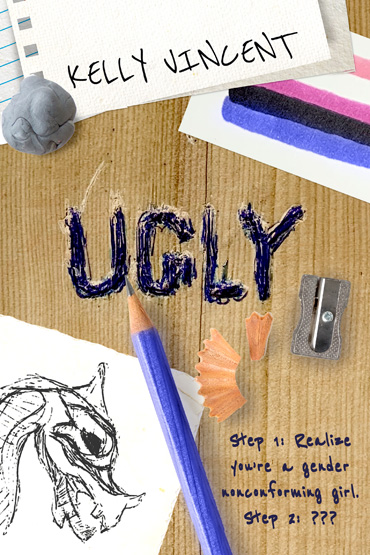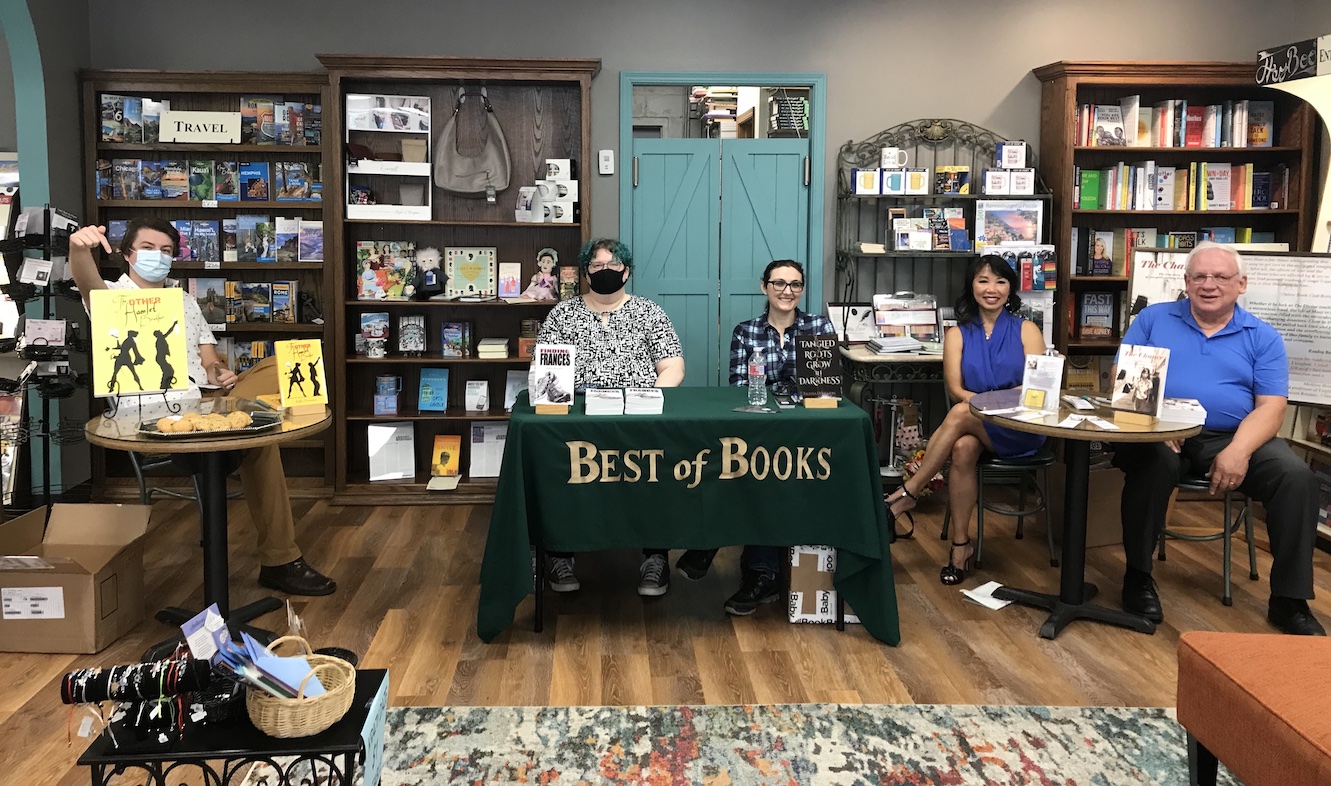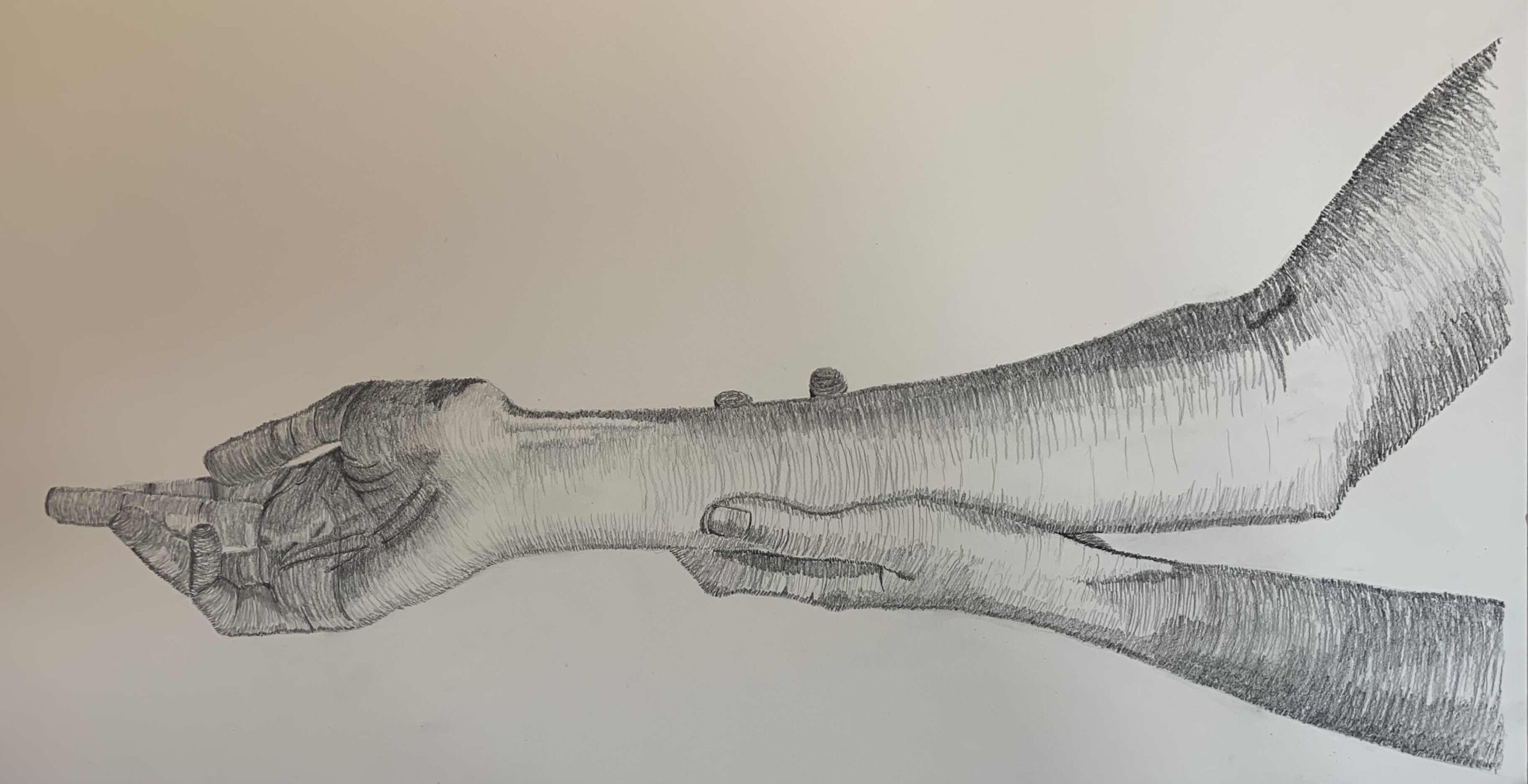A lot of writers, when they’re first starting out, are really sensitive and often afraid for anyone to read their work at all. They eventually get braver, and anyone serious about it will develop thick skin, because you pretty much have to if you want to improve as a writer. I think critique is probably the most important thing for a writer to develop their skills. You have to learn how to convey what’s actually in your head, and only other people can tell you if you’ve accomplished that. The quality of the critique definitely matters, so it’s important to find people that are roughly at your level (or a little better), so you can all grow together while giving each other relevant and not-too-advanced critique (which isn’t helpful). The thing about critique is that you always submit your work hoping that they’re going to turn around and say, “This is perfect. Don’t change anything.” This never happens with a good critique group (if it does, find a new group, because they’re not doing their job). So you have to get used to people telling you things you’re doing that don’t work, and so on. The only caveat is they’re not allowed to be mean about it. Most of the critique partners I have been with for years can take virtually anything at this point. But we’re all also nice to each other and we all know the critique is truly just trying to help. So you get that thick skin.
But reviews are another matter. It’s one thing to have your work read by a few people who know you and your work, and a totally different thing to have strangers read the work you poured your heart into. Because here’s the thing about strangers: some of them are mean. Some people actually feel obligated to “tell the world” about a book they don’t like. Which is stupid because the fact that you, just one person, didn’t like a book says nothing about that book. It’s all about the numbers. Any book that has a lot of ratings is going to have a handful of ones and twos even if the average is over four. Conventional author wisdom is that you shouldn’t read your reviews, especially those by randos on Amazon and Goodreads. If you do decide to do this, you’d better have that thick skin in place because there’s going to be some pain. Reviews by the major review sites like Kirkus and Publishers Weekly are kind of another matter since these are by professional reviewers, so we sort of value their opinions more. However, it is still true that one person’s reaction to your book does not indicate how everyone else’s reactions will go.
As a case in point, I’m going to talk about my experience with my book Always the New Girl, releasing on Tuesday. I entered this book as an unpublished manuscript in the 2021 BookLife Prize (BookLife is an arm of Publishers Weekly focused on indie books). They take self and unpublished books. It ended up being a quarter-finalist in that contest, getting a perfect 10/10 score. I’m going to share the review here, as it’s really good.
But first I’m going to explain a little about the book in case you don’t know it. It’s a little odd, and I always planned to self-publish it and never even tried to sell it because of its oddness. The book came about only because of something one of my writing instructors told me. I had written this short story based on a scene I had removed from Finding Frances when a critique partner (wisely) posed the question of whether it was really needed in that book. It definitely was not. So I created a new character and put her in the situation I’d originally had Retta in, and ran with it. It turned into a revenge story and I liked it a lot. My instructor casually suggested I write several more stories about this character. At first I didn’t think much about it, but then I thought of several other stories I could tell about Sarah. So there were seven stories I ended up with, one while she’s in eighth grade, the others in her last two years of high school. The stories were all pretty long (the eighth grade book is 20,000 words, or over 70 pages). I struggled with how to present this. A collection of short stories? A novel? I decided to do it as a novel in parts. So I assumed the reader read them all in order (short stories would ideally fully stand on their own) and structured it that way. My goal was that each part would stand on its own plot-wise, but that the overall book would have a clear character arc. Because of the nature of it, not all the characters were there throughout. Some important characters disappear and others don’t show up until later, which is a no-no in a typical novel. There are varying time jumps between the parts, and the eighth grade story was pulled out as a prequel. So the book I submitted to the contest and Kirkus started with the original story, the revenge one. And I think it works. And it clearly did for the BookLife Prize reviewer. Here’s what they said (this also published on their site here):
Plot: This plot delves into serious bullying and other grave social issues that can impact teens, and it accurately portrays the extraordinary importance of social media in kids’ lives.
Prose/Style: Vincent writes convincing teenage dialogue with all of the meanness and profanity that can surface at that age. Vincent’s style is spare and to the point, giving just enough detail for to engage the reader’s interest and imagination.
Originality: Vincent’s second YA novel, Always the New Girl, started out as a series of short stories, each of which is well thought out and fully developed. Vincent has woven them together masterfully.
Character Development/Execution: With parents who can be described as negligent at best, Sarah is out of necessity a fiercely independent young woman trying to find her way in the world with very little adult support, but she is able to make good choices for herself and forge a future that should turn out well. Vincent depicts Sarah as an utterly believable character whom one cannot help but respect.
Blurb: Always the New Girl is a carefully considered and executed coming-of-age story about a resourceful young woman who matures from a somewhat rebellious high school junior into a successful senior on her way to college, all with very little help from the adults in her life, but a lot of help from her friends.
So that made me feel great, when I got that back and then found out it was a quarter-finalist. It stalled out there, as the reader for those books probably just didn’t feel the same about it. Perhaps they felt like the Kirkus reviewer did, like it was a hot mess. I can’t directly quote the Kirkus review here because I opted to not publish it. But I can summarize their main issues, which I do here:
Unsatisfactory resolution: There wasn’t a good resolution at the end
Fractured time
Rushed pacing: Pacing feels rushed in each of the parts, like they were written separately and just crammed together
A disjointed story: The various threads never come together
Unnatural character change: Sarah’s changes in her interests seem to be because of the narrative, not a natural thing
Incomplete and weak characterization: Characters are interesting when first introduced, but are gone before they’re developed enough
Inauthentic teen culture
Some of these really do surprise me, like the resolution issue. I really disagree—I think the resolution is solid. There is a storyline with her mom that isn’t resolved, but it’s intentional because that’s life—it’s not always neat and tidy. But Sarah herself is on a clear path at the very end, which came across in the BookLife Prize review. The next two are clearly related to the structure. The BookLife reader totally got it—they went along with the short story concept—but the Kirkus reviewer didn’t seem to find this acceptable in a “novel.” It cracks me up that the BookLife reader said I’d woven them together “masterfully” and the Kirkus reviewer thought they were thrown together haphazardly. I mean, man, is this subjective. It’s also funny that the BookLife reader specifically called out Sarah’s authenticity and the Kirkus reviewer thought her growth was unnatural. I also am surprised at the fact that the Kirkus reviews thought the teen culture I wrote about was unrealistic. It is true that I don’t have a lot of experience with actual teens today. But I read tons of YA, so I know teen culture as it’s represented in YA fiction, which is what I’m writing. So yeah. I think I’m good. But I wondered if the reviewer isn’t widely read in YA. I have no idea how they assign books.
So that was an unfortunate waste of $375. Oh, well. At least it was on sale. Doesn’t mean I won’t try again. Finding Frances got a star, after all (I think only about 10% get them) and the Ugly one was mostly positive. Even my romance got an overall decent review. I just have to move on and do whatever I am going to be doing (once I figure that out).



